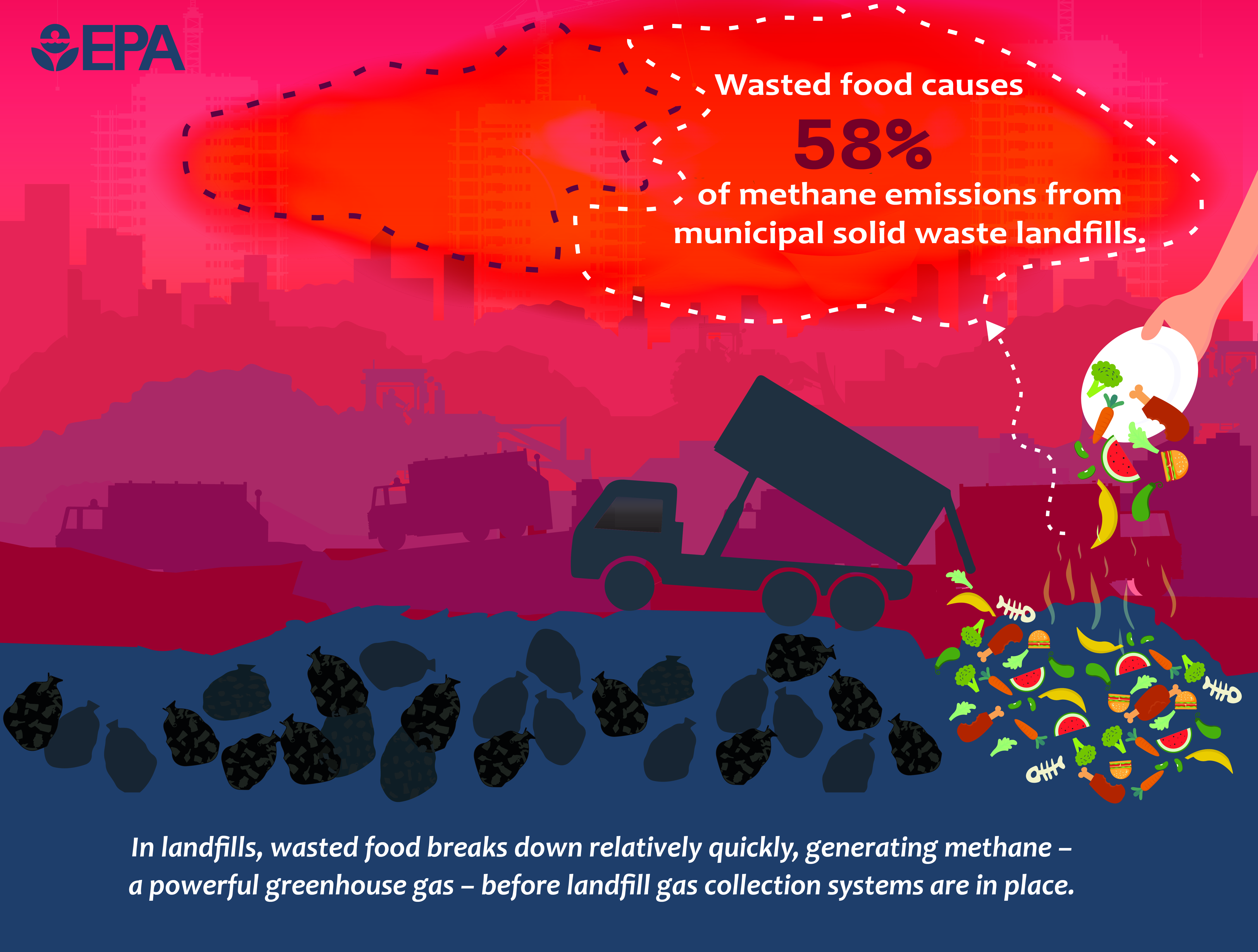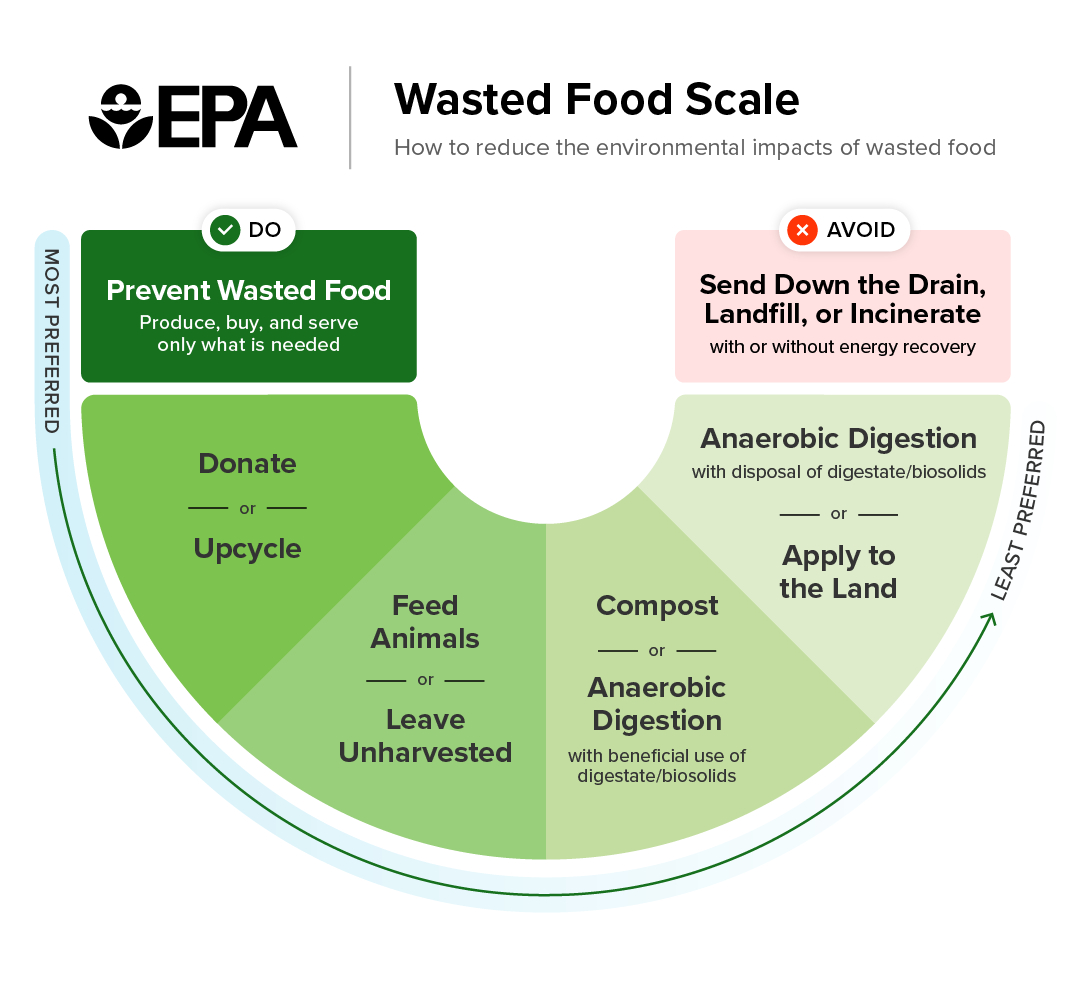
Maryland is taking big steps to reduce wasted food and promote sustainable management of excess foods.
State law requires large food residual generators—including schools, supermarkets, and food processing facilities—must separate and divert food residuals from landfill/incincerators if they generate at least one ton of food residuals per week and are located near an organic recycling facility.
Regulations describe mandatory reporting and applications for waivers.
There are also state regulations in place to ensure that organic recycling (compost and
anaerobic digestion) facilities operate safely and effectively. These facilities must comply with environmental standards to protect air and water quality, and they may require permits from the state depending on their size and operation.
Composting facilities are classified based on the types of materials they accept. Facilities that process only yard waste, such as leaves and grass clippings, may be subject to fewer regulatory requirements than those handling food or animal manure. Depending on the size of the facility and where it’s located, composting operations may need to obtain a
permit, ensuring compliance with environmental standards such as proper site design, stormwater management, and measures to control odors and pests.
Composting facilities must also follow best practices for waste management and pollution control. Operators are required to manage runoff to prevent water contamination, maintain appropriate buffer zones, and monitor the composting process to ensure proper decomposition. Additionally, facilities handling large volumes of organic material may need additional approvals, such as an erosion and sediment control plan if construction is involved.
Interactive Map of Organics Recycling Facilities
Our handy online tool helps generators locate nearby vendors that provide organic recycling services. While not a comprehensive directory, and without endorsement from the Maryland Department of the Environment, this tool serves as a great starting point for those committed to diverting wasted food and supporting a more sustainable future.
Explore the map and find a food diversion solution near you.
Not all extra food needs to be discarded. Many organizations, like the Maryland Food Bank and Move for Hunger, help distribute surplus food to those in need. Instead of tossing extra groceries or restaurant leftovers, donating food can make a real difference in someone’s life. And good news, in 2022 the Federal Government revised the Bill Emerson Good Samaritan Law making it easier and with more liability protection to donate those surplus, edible foods! Learn about this protection and how you can connect with donation options near you! Even food that can’t be eaten can still have value. Some Maryland farms and businesses safely process food scraps into animal feed, turning what would have been waste into nourishment for livestock.
Even food that can’t be eaten can still have value. Some Maryland farms and businesses safely process food scraps into animal feed, turning what would have been waste into nourishment for livestock.
This shift away from a "throwaway" mindset is part of a larger movement toward a circular economy—one where resources are reused, repurposed, and kept in the system instead of being wasted. Composting, food donation, and sustainable farming practices all help create a food system that is better for both people and the planet.
By making small changes, we can all play a role in reducing food waste and building a more sustainable Maryland. It’s not just about what we throw away—it’s about what we can save, share, and renew.
More Information
Contact Information
For additional information or questions email Shannon McDonald or phone at 410-537-3314
